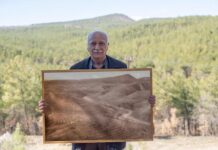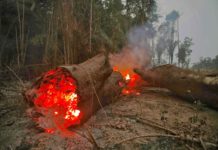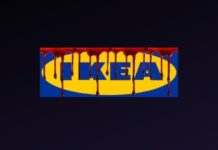In March and April last year, Greenpeace filmed a rainforest area in Indonesia – and uncovered a destruction in an unimaginable extent: For a palm oil plantation, a company has destroyed hectares of forest land – apparently supplying Nestlé, Mars, PepsiCo and Unilever.
These are recordings that affect you. From a helicopter perspective, a team from Greenpeace shows what is currently going on in Indonesia: A company is clearing up large areas of rainforest in the province of Papua – it is preparing a new palm oil plantation.
A total of 5000 hectares of rainforest were destroyed – an area half the size of Paris. Part of the rainforest is still standing, the contrast between the dense green forest on one side and the red-brown area with broken trunks on the other side is particularly depressing.
Watch the video here:
Aufgedeckt: Ein Zulieferer von @Nestle, @Unilever und anderen zerstört in Indonesien #Regenwald für #Palmöl. Die Konzerne müssen sich an ihr Versprechen erinnern: Kein Palmöl von Urwald-Zerstörern! https://t.co/WsOKhB3mcy pic.twitter.com/c20pDEZenb
— Greenpeace e.V. (@greenpeace_de) April 30, 2018
Palm oil industry looking for new land
“After destroying most of the rainforests of Sumatra and Kalimantan, the palm oil industry is now pushing to new areas like Papua,” says Richard George of Greenpeace UK. In this case, it is the “Hayel Saeed Anam Group” (HSA Group) – a multinational that, according to Greenpeace, supplies the major food companies: Nestlé, Mars, PepsiCo and Unilever.
All four companies have actually issued guidelines according to which they should not use palm oil for which rainforest was cut down. The reality looks obviously different, as the British “Guardian” earlier complained.
Nestlé, Unilever, Mars and Co. are responsible
“Brands have been talking for over a decade about wanting to ‘purify’ their palm oil. Companies like Unilever and Nestlé claim to be leaders in the industry. Why are they still buying from forest destroyers like the HSA group? “Says Richard George of Greenpeace.
The big corporations blame the deforestation and other scandals on palm oil plantations time and again on the suppliers. There is also something to it: Because of the complex production and supply chains, it is in fact not always easy to understand from which areas bought palm oil comes from and whether forest was cut down.






